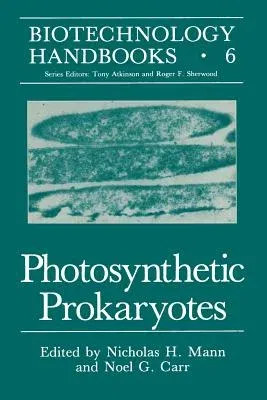Photosynthetic Prokaryotes (Softcover Reprint of the Original 1st 1992)Paperback - Softcover Reprint of the Original 1st 1992, 6 October 2012

Qty
1
Turbo
Ships in 2 - 3 days
In Stock
Free Delivery
Cash on Delivery
15 Days
Free Returns
Secure Checkout
Part of Series
Biotechnology Handbooks
Print Length
275 pages
Language
English
Publisher
Springer
Date Published
6 Oct 2012
ISBN-10
1475713347
ISBN-13
9781475713343
Description
Product Details
Book Edition:
Softcover Reprint of the Original 1st 1992
Book Format:
Paperback
Country of Origin:
NL
Date Published:
6 October 2012
Dimensions:
22.86 x
15.24 x
1.57 cm
ISBN-10:
1475713347
ISBN-13:
9781475713343
Language:
English
Location:
New York, NY
Pages:
275
Publisher:
Series:
Weight:
394.63 gm

